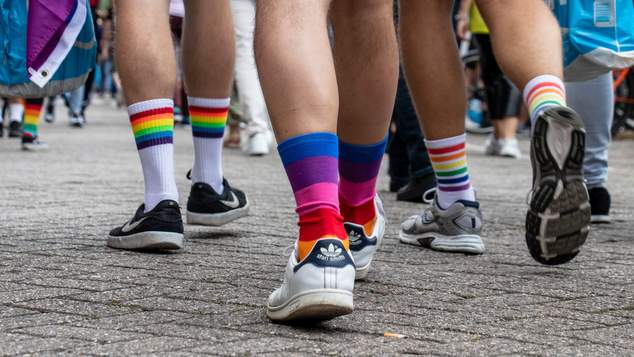
The Australian Psychological Society (APS) has hit back at the deluge of reports from The Australian newspaper suggesting that the increase of the number of transgender people in Australia is due to “social contagion” saying there is empirical evidence that this does not occur.
The APS said the claim was completely unfounded with Professor Damien Riggs dismissing the suggestions.
“Empirical evidence consistently refutes claims that a child’s or adolescent’s gender can be ‘directed’ by peer group pressure or media influence, as a form of ‘social contagion’,” APS Fellow Professor Damien Riggs said.
“To say that there is a trans-identity crisis among young Australians because of social media pressure is not only alarmist, scientifically incorrect and confusing, but is potentially harmful to a young person’s mental health and wellbeing.
“Claims that young people are transgender due to ‘social contagion’ serve to belittle young people by asking them to believe that their sense of self and their gender is nothing more than a by-product of what other people might think or say through the media.
“Further, describing awareness of being transgender as a form of social contagion implies that such awareness can be ‘corrected’ through psychological, medical or spiritual ‘conversion therapies’.
“There is no evidence to suggest that such approaches work in terms of changing a person’s gender. What such debunked ‘therapies’ do produce, however, are high levels of shame, disrespect and distress. So debunked are these ‘therapies’ that they are increasingly being rejected by policy makers and legislators across Australia in favour of affirming responses to transgender people,” Professor Riggs said
As a professional organisation committed to evidence-based practice, the APS said they oppose any forms of mental health practice that are not affirming of transgender people. The APS said they support evidence-based strategies for responding to transgender clients.
The medical group said it supported affirming the person’s gender, challenging negative perceptions of gender diversity amongst family members (especially with regard to children), discussing appropriate referral options for hormonal or surgical responses, if desired – and advocating for the support needs of transgender and gender diverse people.
The statement of support comes as a new study conducted in the USA and involving over 27,000 participants found that conversion based therapies that aim to force a person to accept their biological gender can have negative outcomes.
The Australian newspaper was run a series of almost daily articles promoting the viewpoints of critics of the model of transgender healthcare that affirms people’s gender identity.
The newspaper has been widely criticised from promoting the viewpoints of medical professionals who do not work with patients experiencing gender dysphoria, but have ties to anti-transgender feminist groups and religious bodies.
The newspaper recently reported that the Australiasian College of Medicine would be conducting a review into transgender health care practices in Australia – a claim the college has declared is untrue.
Graeme Watson






